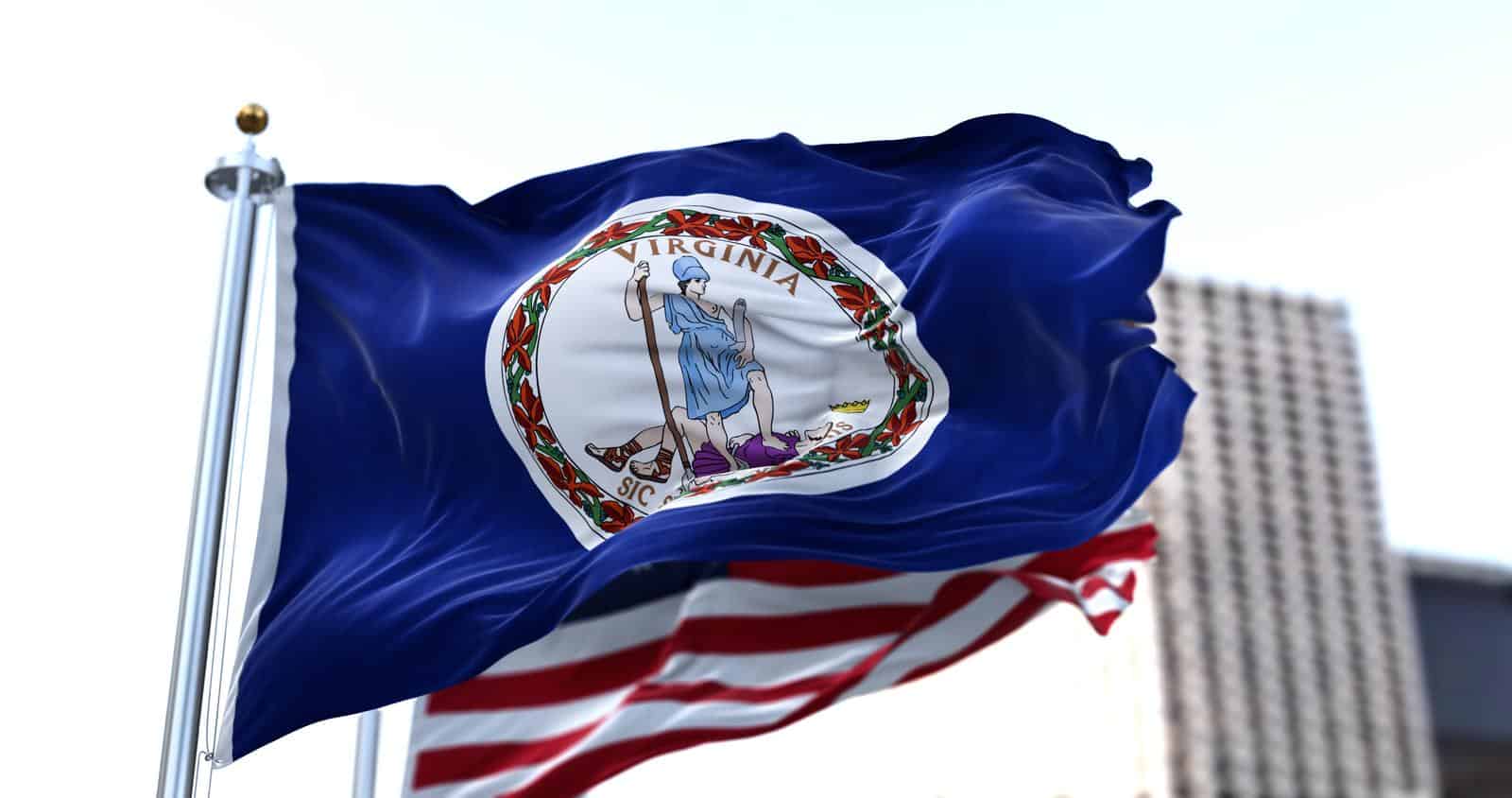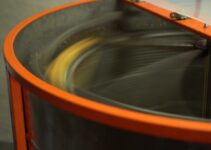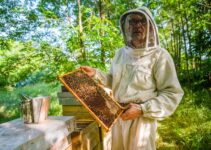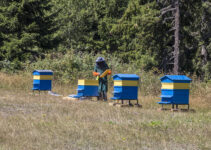Beekeepers must make themselves aware of the rules, laws, and regulations that govern the industry in the state where they reside. Virginia has relatively strict beekeeping rules compared to other states, which makes it even more important for Virginia beekeepers to be aware of the regulations.
Virginia actively promotes beekeeping and has a full set of laws in place that govern the activity in the state. The laws regulate beekeeping safety and density limitations and implement basic best practices for beekeeping to limit the spread of pests, diseases, and unwanted bee species.
Not only must the state laws be adhered to in Virginia, but local by-laws in each city regulate the activity within the city’s jurisdiction. The laws are intended to protect and promote healthy beekeeping within the state rather than limit the beekeeper.
Laws For Beekeepers In Virginia
The government body responsible for beekeeping regulations in the Commonwealth of Virginia is the Virginia Department of Agriculture and Consumer Services, or VDACS. This organization establishes the rules, regulations, and inspections for the beekeeping industry in Virginia. Local laws also govern the keeping of bees in certain areas or cities, which must also be observed.
The goal of the regulations issued by the VDACS is not simply to regulate the beekeeping industry but to promote the growth of beekeeping in Virginia while encouraging care for the environment, public safety, and consumer protection.
Virginia is a state that encourages beekeeping via several programs and assistance for beekeepers. Strict laws are put in place to protect bees and beekeepers by curbing bee-related diseases and pests, limiting pollinator deaths via pesticide use in agriculture, and preventing unwanted bee species from entering the state.
Virginia has a board-appointed State Apiarist who is responsible for enforcing the regulations, performing inspections, and promoting scientific beekeeping practices in the state.
Laws For Keeping Bees In Virginia
The state-wide regulations are the baseline for the Virginia beekeeper, and the focus of the regulations is on a best-practice outline that gives specific beekeeping practices that all beekeepers must adhere to in the state.
Many regulations prevent uncontrolled breeding, migrations, and swarming of bee colonies to effectively prevent the spread of disease, pests, and unwanted characteristics in bees or unwanted species.
Laws For Managing Bees In Virginia
The laws around beekeeping in Virginia can be divided into several sections relating to different beekeeping aspects.
These beekeeping regulations for apiary management include the following.
- Securing empty beehives and beekeeping equipment. All unused or empty beekeeping equipment must be sealed or secured to prevent foraging bees from accessing this equipment or swarming to move into empty hives.
- Removing declining colonies. Weak colonies must be removed or merged with stronger colonies to prevent unwanted species from invading a weak colony and taking over.
- Bee hives and equipment must be kept in a good state of repair. Damaged or defective hive and equipment must be replaced or repaired.
- Bees must be given adequate food in the hive. The colony must have adequate food reserves in the hive to prevent the bees from robbing other colonies when resources run low.
- Secure beehives from vertebrate pests. Ensure your hives are protected from local wildlife and pests that may disturb the colony.
- Prevent swarming. The beekeeper must put management protocols in place to prevent colonies from swarming.
- All comb in the hive must be replaced every 5 to 7 years. This protocol is to prevent disease and pests from proliferating in the beehive.
Laws For Maintaining Bee Stock In Virginia
Virginia has laws that govern the type of bees that can be kept, the breeding and introduction of queens, and the replacement of queens in bee colonies.
The intent of these laws is to restrict and maintain bees of certain species with certain desirable characteristics in the state.
Only bees from known European Honey Bee or EHB stock are allowed to be kept in the state. This includes sourcing queens for your colonies, which must be from known EHB stock and not from areas where known Africanized honey bees are within 100 miles of the queen supplier.
All captured swarms must have their queen replaced with a queen of known EHB stock within 45 days of the swarm being captured.
Queens must be replaced in all colonies every 2 years to reduce the swarming behavior in colonies, and all queens must be marked to indicate their age.
Laws For Hive Locations And Hive Numbers In Virginia
The laws that limit the placement of hives and the density of hives on a property are intended to prevent the spread of disease and pests as well as protect neighbors and the public from the hazards of too many bees or bees too close to a neighboring property.
| Law | Limitation | Description |
| ¼ acre or smaller property | No more than 2 permanent colonies. | A maximum number of 4 colonies are allowed for no more than 60 days for queen mating and controlling swarming. |
| ¼ to ½ acre property | No more than 4 permanent colonies. | Up to 8 colonies can be on the property for no longer than 60 days for queen mating and swarm management. |
| ½ acre but less than 1-acre property | No more than 6 permanent bee colonies are allowed. | The number of colonies can go up to 12 for a maximum of 60 consecutive days for queen mating and preventing swarming. |
| 1 acre or larger property | Properties larger than 1 acre can have no more than 6 bee colonies per acre | Once again, no more than 12 colonies per acre for 60 days consecutively for mating queens and swarm control. |
| 200-feet property line rule | The number of beehives is not limited if the property is large enough to have no bee colonies within 200 feet of any property boundary. | |
| 10-feet property boundary rule | All colonies must be at least 10 feet away from any property lines. | This law prevents your bees from causing a problem for neighbors or passers-by. |
| 40-feet property boundary rule | Colonies within 40 feet of property lines must have a barrier around the apiary of at least 6 feet high, or the hive entrance must be elevated to at least 6 feet. | This is to prevent people from walking within the bees’ flight path to the hive entrance. |
| Provide adequate water supplies for colonies. | The beekeeper must provide adequate and easily accessible water within 50 feet of the beehives. | This is to prevent your bees from foraging for water on a neighbor’s property and becoming a problem for other people. |
Each city may have additional by-laws for the placement of beehives in built-up areas. Every beekeeper must check the local ordinance of their city to find out what the additional laws are concerning beekeeping.
You can look up the ordinances for your Virginia city or county by checking the municipal code library.
Some counties or cities require beekeepers to have a permit, such as King George County, which requires a beekeeper to hold a beekeeping permit and which carries an application fee of $25.
Laws For Selling Bees And Beekeeping Gear in Virginia
All beehives and beekeeping equipment put up for sale must be accompanied by a certificate issued by the Office of Plant Industry Services to give the equipment and bee colonies a clean bill of health before they are sold.
Any bee colonies or queens bought from outside the state will require a certificate of health from the state of origin as well as the receiving state, in this case, Virginia.
Bees and beekeeping equipment sold to out-of-state buyers must be inspected and given a certificate of health before they can be transported across the state line.
Beekeeping Associations In Virginia
Becoming a member of a local beekeeping association is the best way to interact with experienced beekeepers in your area and stay up to date with the local rules and regulations regarding beekeeping in Virginia.
Conclusion
Beekeeping is actively encouraged and supported by Virginia, and as a result, there are many regulations in place to protect the bees, the state’s ecosystem, and the beekeeping and pollination industry.
Consequently, all Virginia beekeepers must make themselves aware of these regulations, which work in the beekeeper’s favor to protect bees, beekeepers, and the non-beekeeping public.
References
https://library.municode.com/va
https://www.kinggeorgecountyva.gov/DocumentCenter/View/1725/Domestic-Bee-Keeping-Permit-Application
https://www.virginiabeekeepers.org/Information-&-Resources
https://law.lis.virginia.gov/vacode/title3.2/chapter44/
https://www.vdacs.virginia.gov/plant-industry-services-beekeeping-apiary-inspection.shtml




